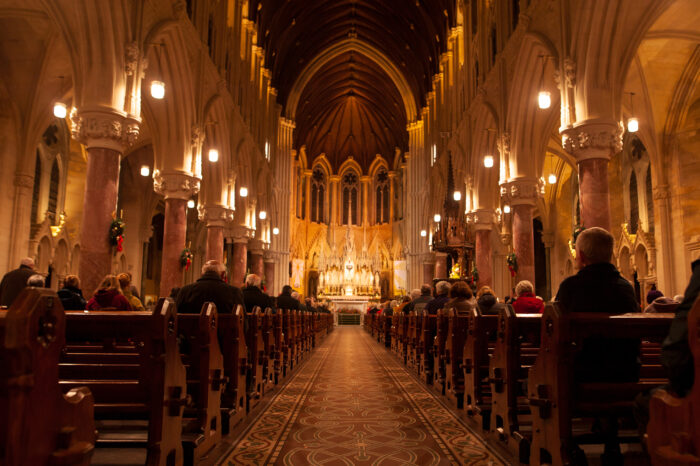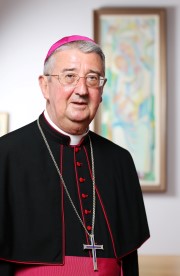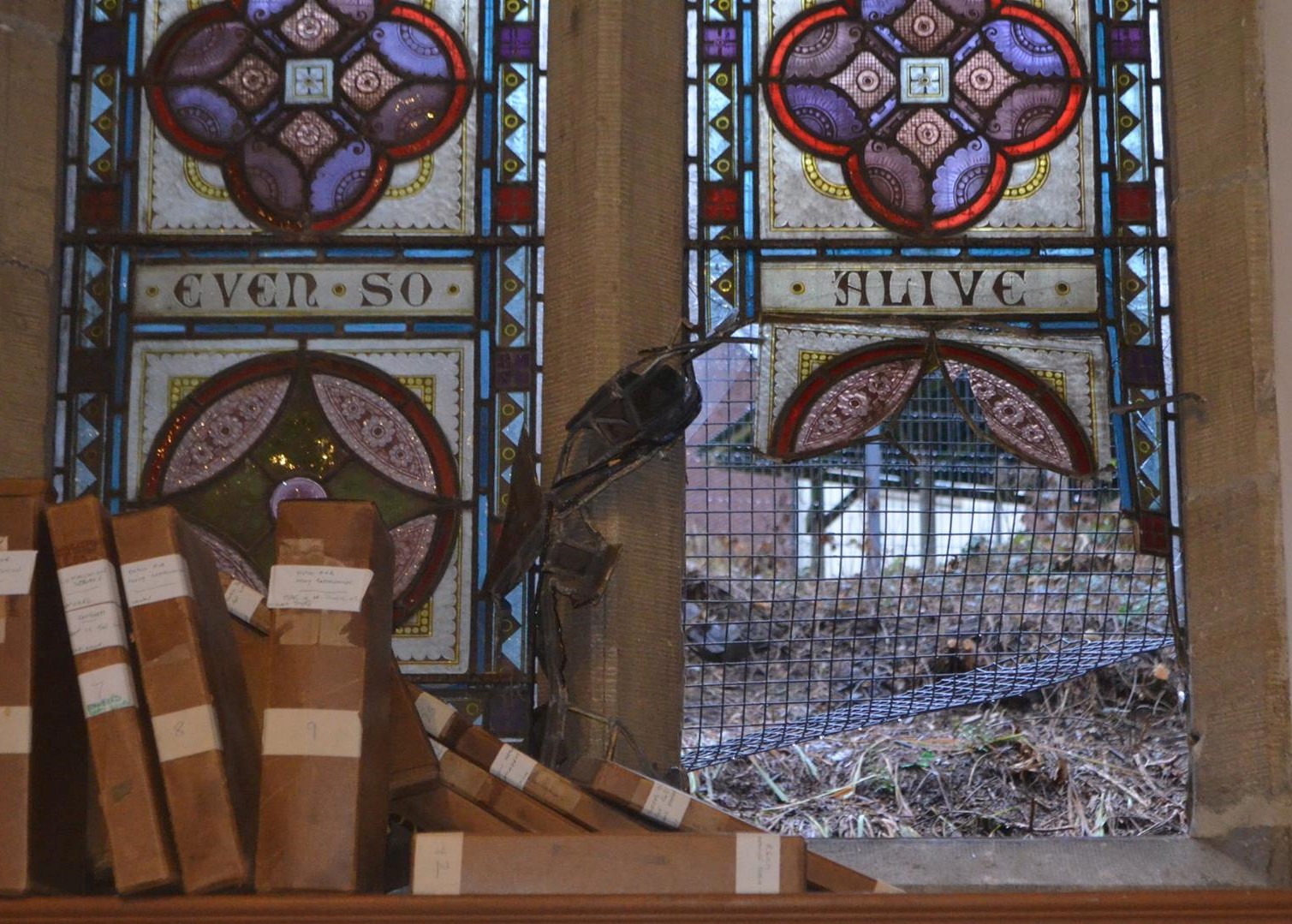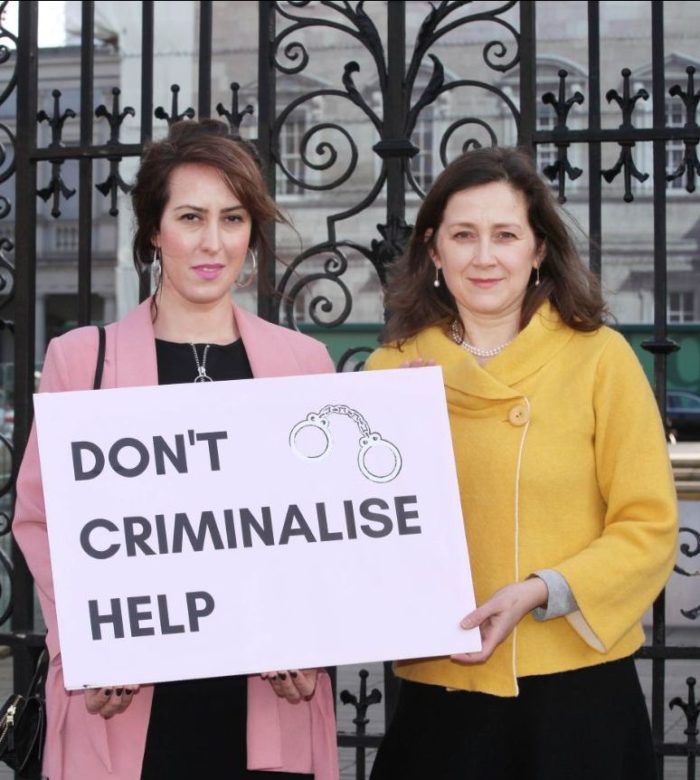
A liberal secular worldview is attempting to dominate and suppress the Christian worldview.
That’s according to the Bishop of Cloyne, William Crean.
Speaking on the celebration of the centenary of the dedication of Saint Colman’s Cathedral in Cobh, Bishop Crean reflected on Ireland today: “In the north of Ireland, the ancient divisions have eluded resolution. In the south a liberal secular worldview seeks to suppress the Christian narrative”.
The bishop also said he welcomes the prospect of a new Church-State covenant.
“Too often the Church’s involvement is represented as an exercise in control and indoctrination. Judging by the recent decades it has failed miserably,” he said.
He added that the Church’s goal is one of service to humanity through its understanding of the human persons unique dignity before God. “It is in that spirit that those of us in leadership wish to go forward. Not to control but to serve”.
Specifically in regards to end of life issues, he said it is “alarming when bizarre and extreme violence ceases to shock us or when suicide is perceived as acceptable and almost normal”.
“Equally is it not disconcerting when euthanasia is seen as a positive option? In making these observations I am deeply conscious of the pain and loss of the families involved. My concern is to raise the question about the nature of the society we are creating which we are keen to describe as modern and progressive.”

The Catholic Archbishop of Dublin, Diarmuid Martin, has said schools’ divestment policy has failed and he has questioned the depth of the desire for change.
Speaking to The Irish Times on Sunday, Archbishop Martin recalled how last month in Dublin Castle – at a meeting between the Government, leaders of Ireland’s churches, other faiths, and various ethical groupings – he told the Taoiseach that the policy on divestment of schools’ boards of management had failed. “The answer I got was that he was only trying to blame the methods for the fact that it hasn’t worked. I didn’t say that we should give up on it.”
The Archbishop further recalled how “the Taoiseach said to me on another occasion there were many other local factors. I suggested the only way to do it was to have some sort of figure or a group of people who went and looked at it.
“Way back when Batt O’Keeffe was minister for education (from 2008 to 2010), I said that probably one of the best ways to do this was to get schools in areas and say that over the lifetime of this grouping the school will change. If you’ve got junior and senior [classes] the lifetime would be only two or three years and that you would have the idea that they would gradually change in ethos rather than have to do it overnight.”
More generally, the archbishop said he felt that while the topic of divestment was “a lively issue in general reflection, I’m not too sure on doorsteps, I’m not too sure that many people are asking for it, because if people are happy with their school they are happy with their school.”

Eight churches have been sealed across Algeria over the past 21 months.
It comes after the launch of a government campaign in 2017 to close Christian places of worship and other Christian institutions.
The government requires buildings to obtain a license, permitting them to engage in non-Muslim religious worship, but has refused to issue any since the law was instated in 2006.
As a result, it has become standard practice for churches in the region to rent premises and inform local authorities of their activities.
Five churches have been sealed by authorities for not having licenses, following visits from building safety committees.
Freedom charity Middle Eastern Concern (MEC) have also reported that at least three churches have been ordered to cease all Christian activities.
Parishioners are concerned that their freedoms will continue to be threatened and MEC are urging believers to join them in praying for “the Lord’s peace, wisdom and guidance” for EPA and church leaders and for an end to the persecution faced by the Christian community at the hands of the authorities.
They are also calling for the regulations governing non-Muslim worship to be amended to allow Christians to worship freely.

Parents will have the option of removing their children from sex-ed classes in the state of Ontario as the province rolls out a new curriculum that moves topics of gender identity and gender expression to later grades, Ontario’s Education Minister says.
The revised health and physical education curriculum, released on Wednesday, includes a provision that gives families three weeks notice of when sex-ed lessons will be taught, and up to five school days before the class to provide school boards with an exemption notice for their children.
Under a previous plan, an opt-out process was available, but some boards, including the Toronto District School Board and the Peel District School Board, would not entertain requests to let students miss classes about sexual orientation, gender identity or similar issues because those areas are protected under the human-rights code.
“We do believe that parents have an important say in some of the more sensitive issues and subject matters that get taught to their children,” Education Minister Stephen Lecce said in an interview on Tuesday. He added later: “The overwhelming [number] of parents in this province want their kids to learn a modern curriculum that teaches respect and embraces the principles that define this nation. And I think we do that in this curriculum. But we also ensure that parents have a say.”
Several provinces, including British Colombia and Alberta, also have an opt-out process for sex-ed lessons.

Newly released figures confirm that churches are being attacked almost every second day in the North of Ireland.
Christian Action Research and Education (CARE) NI said there were 445 recorded cases of criminal damage in the past three years, according to figures that came from the Police Service of Northern Ireland (PSNI).
The attacks have hit religious buildings, churchyards and cemeteries and have happened in every one of Northern Ireland’s 11 policing districts.
The charity has called on political parties to help set up a fund for extra security for churches and other religious buildings, similar to a scheme that already exists in England and Wales.
Created in July 2016, the places of worship (POW) protective security funding scheme provides financial resources to religious organisations, helping them buy security measures such as CCTV, fencing and lighting.
Dr Alistair McCracken, clerk of session at Saintfield Road Presbyterian Church, said he would support any government measures to protect churches.

The UK Court of Appeal has upheld an exclusion zone outside of an abortion centre in Ealing, London. The appellant, Alina Dulgheriu, has said she will appeal to the Supreme Court. In Ireland, plans to introduce such zones outside all abortion facilities have stalled for now.
The Court found that the appellant’s rights to assembly, religion, thought, expression and the reception of information were violated by the Ealing Public Space Protection Order (PSPO). Nevertheless they ruled that such violations were justified because of the right to privacy of Marie Stopes attendees not to be seen in public.
Alina Dulgheriu, a mother who herself had been helped by a local vigil, unsuccessfully challenged the order at the High Court last July after Ealing Council introduced an exclusion zone around the Marie Stopes abortion centre. Pro-life critics call them ‘censorship zones’.
Alina said: “My little girl is here today because of the real practical and emotional support that I was given by a group outside a Marie Stopes centre, and I am going to appeal this decision to ensure that women in Ealing and all across the country do not have this vital support option removed.”

Long-acting reversible contraception (LARCs), such as the coil and the contraceptive implant “bar”, should be at the centre of a “fully State-funded contraception scheme”, a leading women’s health advocate has said. There is no evidence that State-funded contraception reduces abortion rates in the general population.
Alison Begas, chief executive of the Dublin Well Woman Centre, said contraception should be available free of charge alongside access to free abortion services adding there was a “growing demand” for LARCs as the most effective forms of contraception. The increases are detailed in the centre’s 2018 annual report published on Tuesday.
“Cost, however, is a major barrier to women accessing LARCs,” she said.
While the contraceptive pill, which must be taken daily, costs about €7 a month plus a six-monthly doctor-consultation fee of about €50, the intra-uterine coil and the contraceptive bar cost about €300 and €260 respectively, including consultations and insertion.
The coil, inserted into the uterus, and the “bar”, inserted under the skin in the upper arm, provide almost 100 per cent protection for between three and 10 years after insertion.

Planned Parenthood director, Dr Leana Wen, was sacked after less than a year leading the company, for not prioritising abortion enough.
Starting in September 2018, Dr Wen led Planned Parenthood – which performed 332,757 abortions in the 2017/2018 fiscal year making it the largest abortion provider in the USA – until July of this year.
Speaking to the New York Times she said: “There was immediate criticism [after her hiring] that I did not prioritize abortion enough. While I am passionately committed to protecting abortion access, I do not view it as a stand-alone issue… For me, as a physician, it was also simply good medical care to treat the whole patient.”
“Perhaps the greatest area of tension was over our work to be inclusive of those with nuanced views about abortion,” she wrote. “I reached out to people who wrestle with abortion’s moral complexities,” she added.
Dr Wen’s sacking comes at the same time as increasing numbers of Planned Parenthood employees are leaving the company due to the fact that it company seems to put financial concerns over quality patient care.

A child born through IVF and surrogacy has turned out to be not genetically related to the couple who commissioned it. Blaming a ‘mix-up’ at the IVF clinic they used, the couple posted their situation on an internet message board.
The anonymous father, who is thought to be American, explained that the couple decided to pay a surrogate ‘lots of money’ to have a child.
He continued that he and his wife were ‘excited’ but when the baby was born they realised ‘something was wrong.’
‘The baby had Asian features, black hair and brown eyes when we are both white, blonde folks with blue eyes.
‘We immediately brought up the issue with the doctors and asked for a DNA test. I am not the father,’ he added.
He further wrote that he and his wife are ‘devastated’ and that the surrogacy and sperm bank did an investigation and told the pair that there was an ‘extremely rare’ mix-up and offered the couple financial compensation, but only if they didn’t go to the media about it or sue.
The father admitted he was thinking of taking legal action against the clinic anyway and not keep the baby. However, he added that the surrogate mother cannot keep the child as she already has five.
The case is similar to an Irish case that came before the courts in 2016. In that instance, an Irish couple commissioned a child through a foreign surrogacy arrangement but discovered after they had brought the child home that they had no genetic relationship to it. The result of that case was never publicised.

School patron bodies have been invited to apply for the patronage of six new post-primary schools to be established next year.
The six new schools are being set up to meet the demand from growing populations in parts of Greater Dublin, Meath, Kildare and Wicklow.
Parents whose children will be starting first year from 2020-2024 and who are living in the areas listed will be eligible to make their preferences known in an online survey carried out by the Online Patronage Process System (OPPS).
The patronage process for new schools is overseen by the New Schools Establishment Group, which was established in 2011 to advise the Minister.